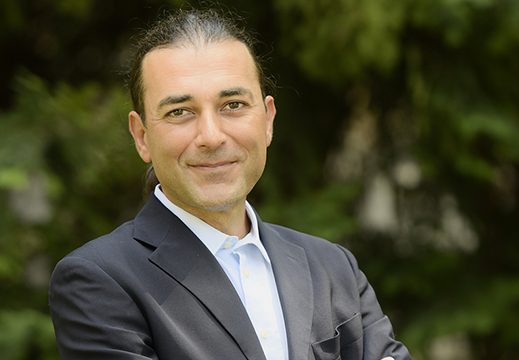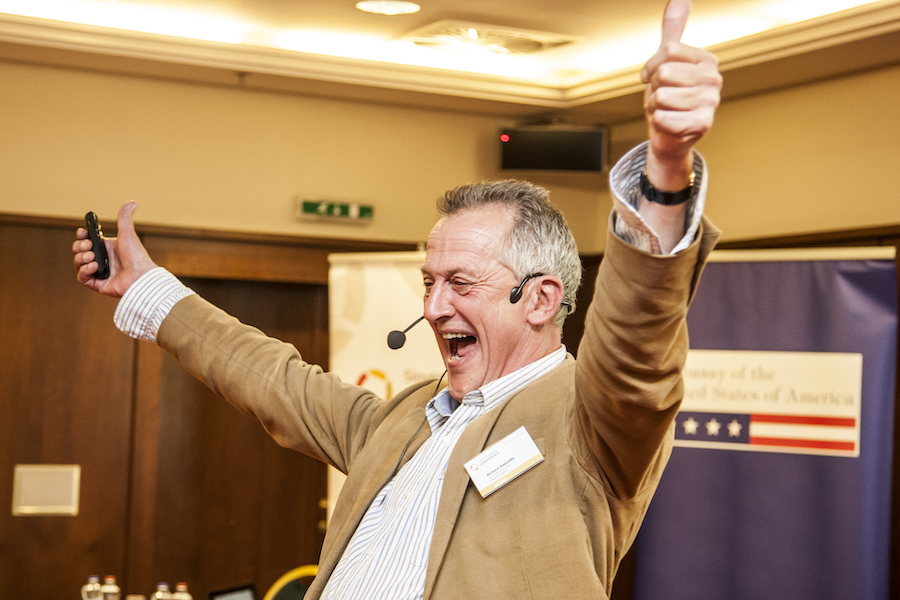
Your Voice: The changing face of fundraising in Italy
September 19, 2018
Expert View: Donor revolution brings new legacy potential
December 5, 2018With non-profits increasingly reaching out across national boundaries to fundraise, managing director of Chapel & York International Nancy Bikson explores the questions fundraisers need to ask to determine if international fundraising is for them and how to get started.
The fundraising world is changing, and in many ways for the better. Donors increasingly want a deeper level of engagement with the philanthropic causes they support, rather than just giving money away. Younger supporters, in particular, are looking at social investment in addition to traditional financial support models. And as people move around the world their philanthropic support is targeted at organisations in their new country, their country of origin and wherever their areas of interest.
For fundraisers this provides both opportunities and challenges. It opens up pathways to reach new supporters and gain visibility. But it can also be an expensive, time-consuming experience, particularly if you don’t know where to look.
How do you not only engage donors in traditional ways but how do you address new ideas and new methods? How do you work with local donors but also reach out to those worldwide?
Analyse why you are looking internationally
If it’s that you’re having trouble finding funds at home, then going further afield is usually not a good idea. If you have donors that have moved abroad, it is of course important that you follow them to the new country but it may or may not give rise to an entire campaign. And if you’re following the lead of other charitable organisations who fundraise in other countries, remember that what may be good for them may not be right for you.
But if you have a unique or sustainable project that will be of real interest to supporters, trusts and foundations elsewhere then that is a good reason to fundraise abroad. Similarly, if you have a potential or known supporter base of individuals or corporates, fundraising internationally can be hugely effective.
Where do you want to look?
Are there specific countries which fit your criteria for fundraising internationally? There has been great interest in the United States for many years and that still continues to be a place which has great resources although not necessarily the most international outlook. The Middle East has vast wealth and also a culture of giving but is very private, as is Asia. China interests many charities and has numbers of students who study abroad. Latin America and Africa are both increasing in wealth with an attendant increase in interest in fundraising from other countries.
Always look to start from the ‘easiest’ countries – those with the greatest numbers of your potential supporters, those with no language issues, those where you have local support and those who have great relationships with you.
Who are your potential supporters?
What is your case for support from the various donor groups? Why should they support you and not something local? Being able to answer this is essential to your campaign.
Individual supporters are sometimes the most difficult to find, but consider those supporter groups with potential connections to the cause. Is there a large expat community in the country? Do you have a large number of alumni, graduates, members or those currently engaged with you? Do you have current supporters living there who will help ease your fundraising path in the country?
Should you be looking at trusts, corporate or statutory funding sources?
Within Europe and North America, trusts and foundations are generally easily identifiable and their giving interests are publicly known. In other regions such as the Middle East and Asia, trusts and foundations are more like charitable bank accounts for donors. For the former it can be worthwhile to research potential funders and make applications. For the latter they should be approached as if individuals.
Corporate giving often starts locally with employers supporting the organisations nearest to them. However companies have always supported organisations in areas where they want to expand and international companies will support organisations who best make the case for benefitting the company as well as the organisation. Giving a company the option to support you from another country can secure an otherwise unavailable donation.
EU funding, USAID and other governmental funding may be appropriate and accessible for organisations outside their countries, but it can be difficult to make appropriate applications and funding can take a long time to receive.
What do you know about the local culture, tax and legal framework?
Underpinning any international fundraising is an understanding of the local culture. Having relationships, whether paid or volunteer, with experienced people on the ground is vital for the most successful of ventures. It is a useful opportunity to engage with supporters to ask their advice and help.
Make sure you understand whether there are tax benefits for donors giving to you and how they can access those benefits. Offering a tax benefit can be a strong incentive for donations, but the systems vary from nation to nation. For example, in the United Kingdom charities can reclaim 25% from the government through the Gift Aid scheme with no extra work. In other countries tax deductions means the donor receives a reduction on his or her tax bill.
Some offer no incentive at all for charitable giving, while others offer generous benefits. However, it’s important to be clear whether those benefits apply on donations that leave the country.
In most cases for the donor to receive a tax benefit the donation must be given to a local charity who can then use the funds abroad. Chapel & York, The King Baudouin Foundation and others have charities around the world who can do this. Transnational Giving throughout Europe can also be used for countries which have membership and for donations which qualify.
Finally…
Fundraising across national boundaries is seeing rapid growth and has become an important part of many charities’ fundraising strategies. It needs to be approached as professionally as you would when fundraising from local sources, but the potential is often far greater. The only certainty is that if you don’t ask you won’t receive anything, so if you believe it’s right for your organisation, reach out and give it a try.
About Nancy Bikson
Nancy is managing director of Chapel & York International, which specialises in providing services to organisations fundraising internationally.




